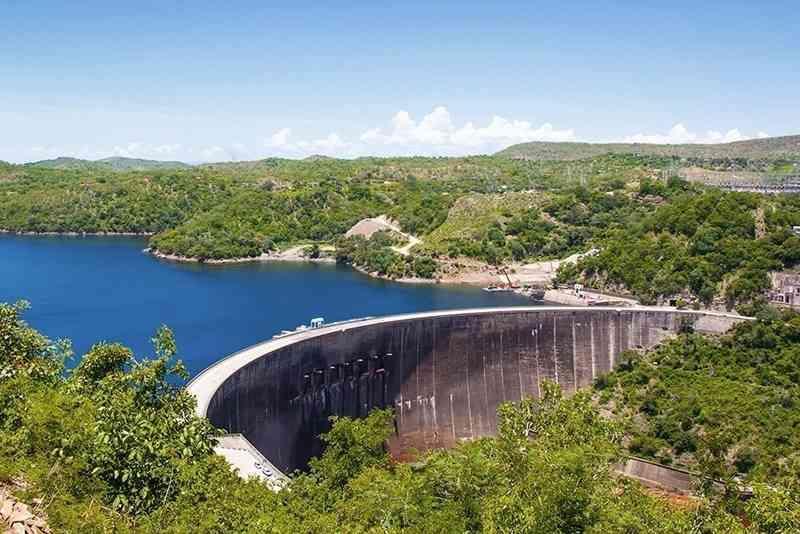By Obert Siamilandu
Africa-Press – Zimbabwe. THE sun was setting over Lake Kariba, casting a golden glow over the calm waters.
But for Isaac Mumpande, an experienced fisherman, the serenity was deceptive.
He knew the lake’s calm waters hid a treacherous reality, one that had claimed the lives of many fishermen, including his own brother.
Mumpande’s eyes wandered to the spot where his brother, John, had disappeared and perished five years ago.
The memory still lingered and haunted him.
“It was a day just like this,” Mumpande recalled, his voice barely above a whisper.
“The sun was shining and the water was steady.
“But then, without warning, the boat capsized and John was gone.”
The fishing community on Lake Kariba is not new to tragedy and grief.
The lake’s unpredictable waters and strong storms have claimed many lives over the years.
For Mumpande, the loss of his brother was a turning point.
He could have given up fishing, but instead, he chose to continue, driven by a sense of responsibility to his family and society.
As this reporter walked along the lake’s shores, Mumpande pointed out the various dark spots where fishermen had met their fate.
There was the spot where a boat had capsized, killing all on board, and the area where a fisherman had been attacked by a crocodile.
The stories were a stark reminder of the dangers involved in fishing on Lake Kariba.
Despite the risks, Mumpande and his fellow fishermen continue to venture out onto the lake.
They know the risks, but they also know that fishing is their livelihood.
“We are not just fishermen,” Isaac said.
“We are providers for our families and community.
“Without fishing, we would not survive.”
The Zimbabwe Parks and Wildlife Management Authority (ZimParks) has implemented measures to improve safety on the lake.
They have introduced regulations to prevent overloading and they conduct regular patrols to monitor fishing activities.
However, more needs to be done to address the root causes of the accidents.
According to Water and Inland Department Lake captain Adan Nyekete, accidents on Lake Kariba’s waters have been on the increase.
“We are worried about the increasing number of accidents on Lake Kariba,” he said.
“We urge all boat operators and users to take necessary precautions and follow safety guidelines to prevent such incidents.”
As the sun went below the horizon, Mumpande and I returned to the fishing village.
The atmosphere was quiet and sombre, with many fishermen gathered around a fire, sharing stories of their experiences on the lake.
Mumpande joined them, his eyes beaming with a mix of sadness and determination.
The lake may have taken his brother, but it would not take his spirit.
Mumpande would continue to fish, driven by a sense of purpose and responsibility.
And as he looked out onto the lake, he knew that he would always be bound to its waters, forever connected to the memories of those who had lost their lives on its deadly grip.
The story of Mumpande and his fellow fishermen is a revelation to the resilience of the human spirit.
Despite the dangers and uncertainties of their profession, they continue to venture out onto the lake, driven by a sense of duty and responsibility.
Their story is a reminder that even in the face of adversity, the human spirit can persevere.
As I left Nyaodza fishing camp I could not help but feel a sense of admiration for Mumpande and his fellow fishermen.
They are the unsung heroes of Lake Kariba, risking their lives daily to provide for their families and community.
The lake may be treacherous, but it is also a source of life and livelihood for the people who depend on it.
As the fishermen continue to venture out onto its waters, they do so with a sense of respect and reverence for the lake’s power and majesty.
They know that the lake is a force to be reckoned with, but they also know that it is a source of beauty and wonder.
Gache-Gache fishing camp chairperson Tichaona Manzungu bemoaned the lack of proper safety measures.
“The lack of proper safety measures and reliable recorded data on the deaths and injuries that occur each year has exacerbated the problem,” he said.
Manzungu highlighted the need for awareness campaigns and alternative income streams for villagers, who face over 90% unemployment.
The story of Lake Kariba’s deadly waters is a complex one, filled with stories of tragedy, sadness, grief, loss and resilience.
Since the beginning of the year, about 10 people have perished in Lake Kariba, with the latest being the case of a woman who is still missing after she was attacked and dragged by a crocodile into the deep waters of the lake last week.
A senior resident of Kariba and a fishing expert, Rhodes Madyira, said there was need for people around Lake Kariba to take precautionary measures to avoid incidents of deaths on the lake.
“There is need to fight attacks and accidents at the lake,” he said.
“Authorities should engage in various campaigns that will help communities who live or rely on Lake Kariba.”
On April 25 at around 3:30pm at Gatche-Gatche fishing camp, two men who were fishing in the lake drowned when their boat capsized after being attacked by a hippopotamus.
They failed to swim to the shore and their bodies are still missing.
A report was made at ZRP Kariba by ZimParks officials at Charara site.
The ZRP Sub-Aqua unit attended the scene and efforts are still in progress to locate the bodies.
“Police continue to urge the public staying or doing their day to day business in wildlife infested areas to be on high alert always as chances of being attacked are always high,” said Ian Kohwera, police spokesperson for Mashonaland West province, in a statement.
Two days later, two fishermen had their vessel develop a fault and decided to swim to the shore.
However, as they were about to reach safety, they were both attacked by a crocodile and submerged in the deep waters.
Though Lake Kariba has become a source of livelihood, it has also brought misery to families of fishermen as its belly contains remains of those who perished in it.
Source: NewsDay
For More News And Analysis About Zimbabwe Follow Africa-Press






